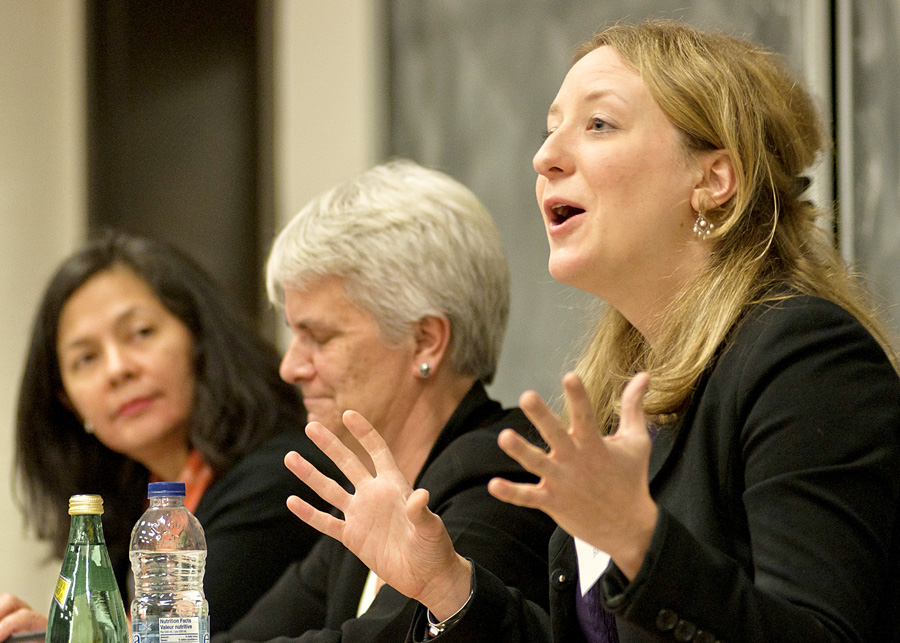On Nov. 15, three experts spoke to students at a panel that focused on new approaches to foreign aid, and the merits and drawback for each approach. Organized by the Student Network for Economic Development, Engineers Without Borders (EWB) McGill, and Youth Action International, the event was entitled “A New Foreign Aid Toolkit: Fresh Perspectives.”
“Our goal with this [event] was to get a perspective from the ground,” Adam Hasham, vice-president advocacy for EWB McGill, said.
The panel included Audra Rényi, executive director of World Wide Hearing; Hélène Laverdière, vice chair of the Standing Committee on Foreign Affairs and International Development in Canada’s House of Commons; and Paola Perez-Aleman, an associate professor of strategy and organization in the Desautels faculty of management.
Panelists discussed new approaches to foreign aid, such as Cash on Delivery Aid, a model of aid that requires that recipient country reaches a certain level of development before money and resources are offered. According to CBC Ottawa, Cash on Delivery is a program built by EWB, and representatives of the organization met with Canadian members of parliament last June, urging them to create a pilot government program based on the model.
All panelists expressed reservations about the Cash on Delivery Aid model. Rényi said one risk of the program is that it can push developing countries to focus more on target numbers—such as the number of students enrolled in school—rather than the quality of new development projects.
The debate opened with a question from Hasham.
“If you could change one thing about [Canada’s] current foreign aid system, what would it be and why?” Hasham asked the panelists.
According to Laverdière, Canada needs to work more closely with aid recipients. She said stronger communication with these countries will help Canadian foreign aid programs better address their particular needs.
“[Foreign aid] is a joint venture, and the donor countries should work by the needs and the systems of the countries they are helping,” Laverdière said.
Laverdière also responded positively to a question posed to the panelists by an audience member about their feelings on the increasing involvement of the private sector when it comes to government foreign aid.
“It’s good,” she said. “[The government is] taking private companies and seeing how they can help in developing countries, but this is not a substitute for government action.”
Perez-Aleman agreed, and also cited how consumers and NGOs have put effective pressure on private companies to act more responsibly.
“We are seeing a new generation that is growing up and … managing these companies … I think it is important to bring [private companies] into development, local and foreign,” Perez-Aleman said.
Students at the event expressed appreciation about the panelists’ diverse perspectives.
“I thought it was fantastic,” a student said after the event. “It was great to have three different perspectives. They had very different opinions.”







